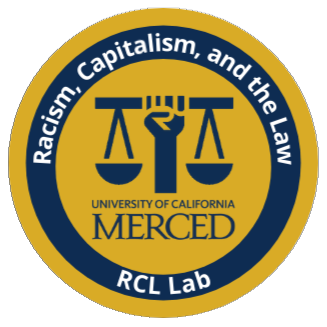Publications
2007
This paper examines the relationship between globalization and immigration, and makes the case that current foreign policies and immigration regulations in the United States and France result in the violation of the human rights of migrants. In the United States, the House and Senate proposals presented in 2005 and 2006 to stem the tide of immigrants and thereby fix the immigration "problem" either criminalize undocumented workers or transform them into temporary workers. In France, the "selected immigration" bill introduced by Interior Minister Nicolas Sarkozy, and passed in 2006, makes it easier for skilled workers to enter and remain in France and harder for less skilled workers to do so. These proposals and bills fail to see immigrants as human beings with dignity and fundamental rights to a livelihood, a family, and a community, and fail to take into account the receiving countries" complicity in producing emigration. Designed to maximize profits for corporations, and minimize the prices of consumer goods for customers in the Global North, these policies and regulations have a high human cost. This paper explains how temporary worker programs are designed to extract labor from immigrants while preventing them from becoming full and equal members of the communities in which they work and live, and how the criminalization of undocumented immigrants transforms migrants into second-class citizens. From a human rights perspective, all human beings should have the right to food security, to decent health care, to safe working conditions, to an education, to a family, to their cultural identity, and to fight and organize for their rights. Temporary worker programs that permit workers to come to a country only to work for low wages and no benefits, and do not permit them to bring their families, to send their children to school, and to form communities are a violation of these workers" human rights.
2006
Are predictions that Hispanics will make up 25 per cent of the US population in 2050 reliable? The authors of this paper argue that these and other predictions are problematic insofar as they do not account for the volatile nature of Latino racial and ethnic identifications. In this light, the authors propose a theoretical framework that can be used to predict Latinos’ and Latinas’ racial choices. This framework is tested using two distinct datasets – the 1989 Latino National Political Survey and the 2002 National Survey of Latinos. The results from the analyses of both of these surveys lend credence to the authors’ claims that Latinas’ and Latinos’ skin colour and experiences of discrimination affect whether people from Latin America and their descendants who live in the US will choose to identify racially as black, white or Latina/o.
This article responds to the current academic debate on the advantages of bilingualism to the children of immigrants in the United States. The author utilizes data from the 1992–1993 and 1995–1996 Children of Immi rants Longitudinal Study to estimate the effects of bilingualism on efucational outcomes. In contrast to a recent study, the author rovides conclusive evidence that there are advantages to bilingualism beyond the functional ability to communicate with one’s parents. The author also provides evidence that demonstrates that bilingualism is only advantageous in those communities with low levels of English proficiency and high levels of resources and networks.


